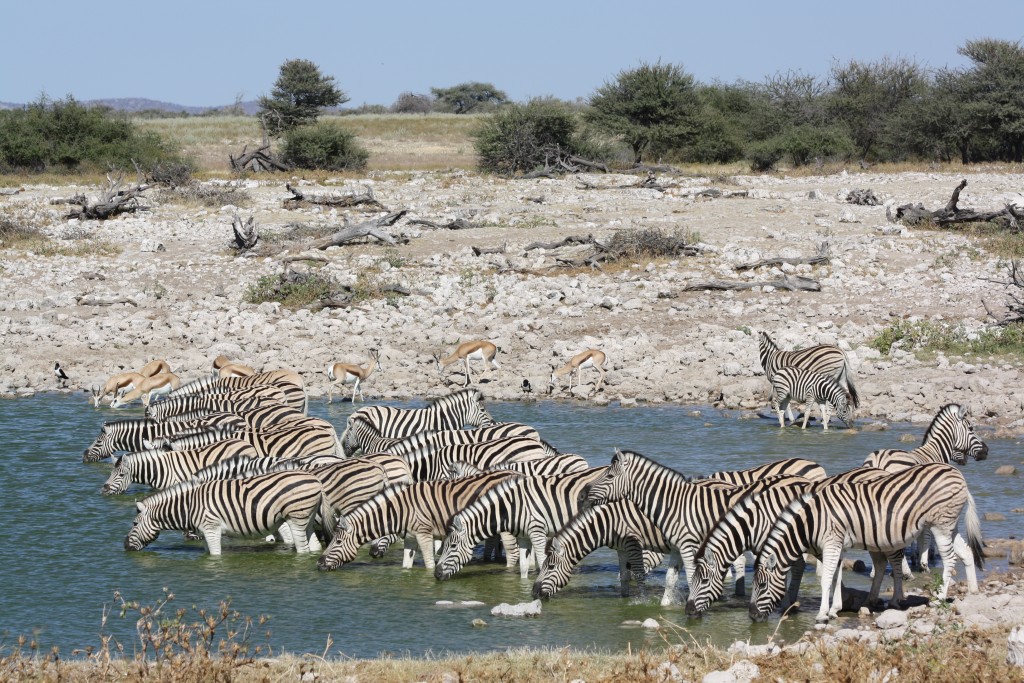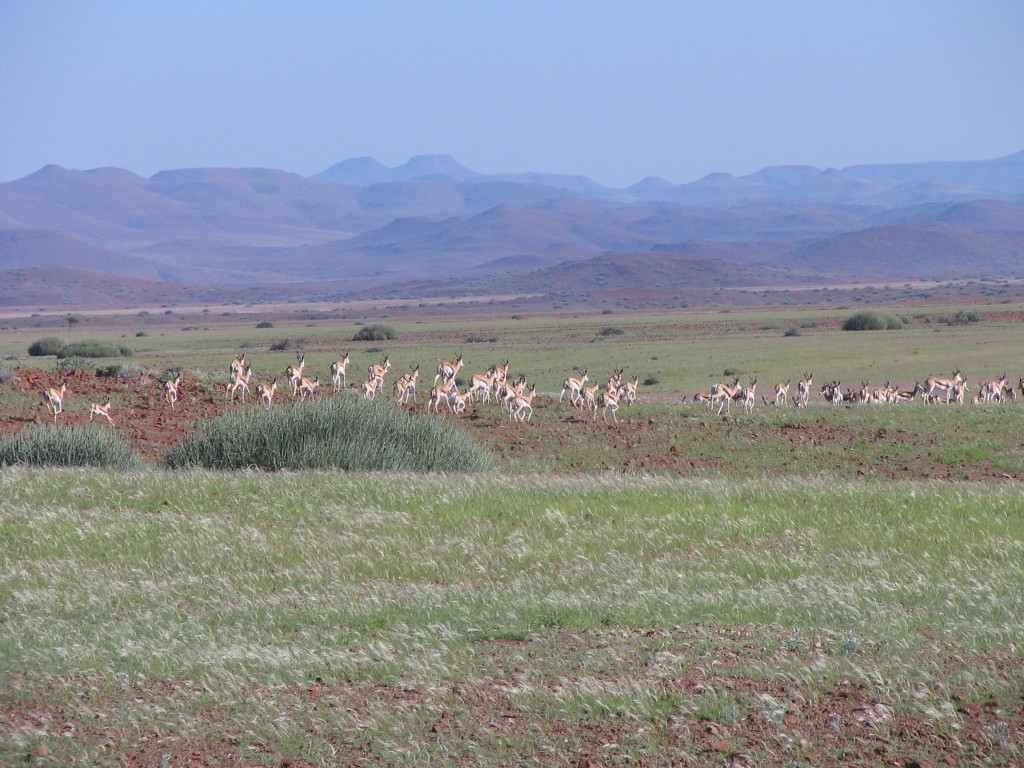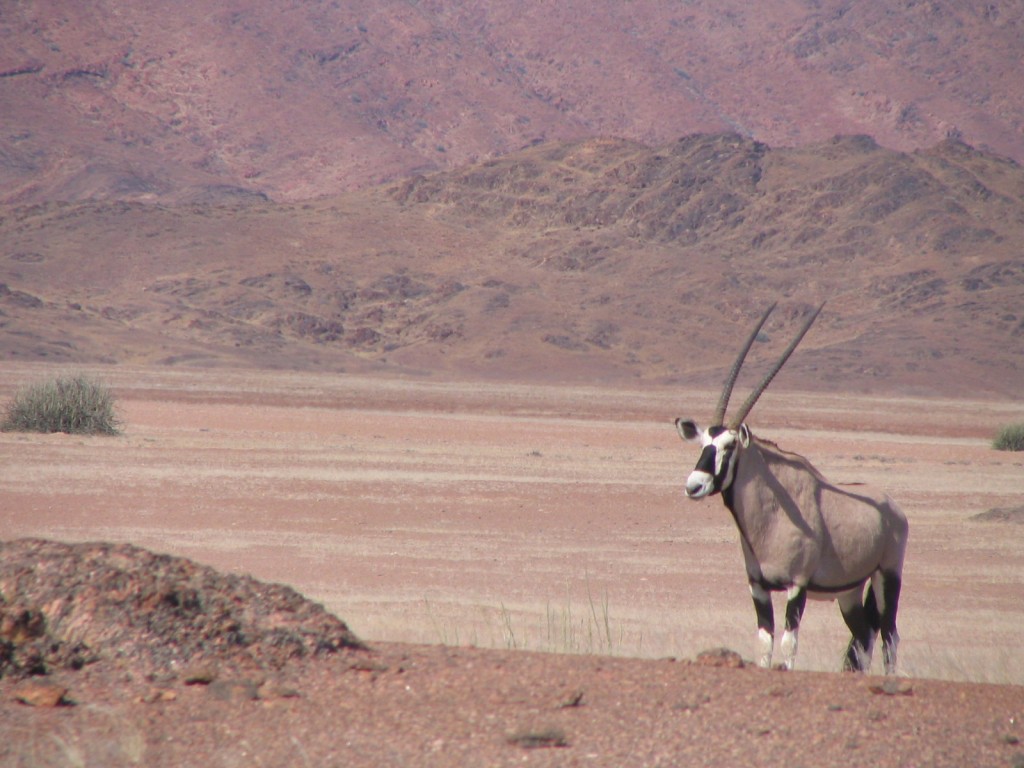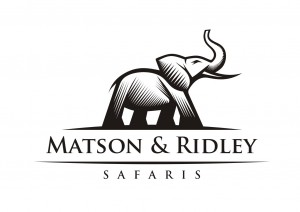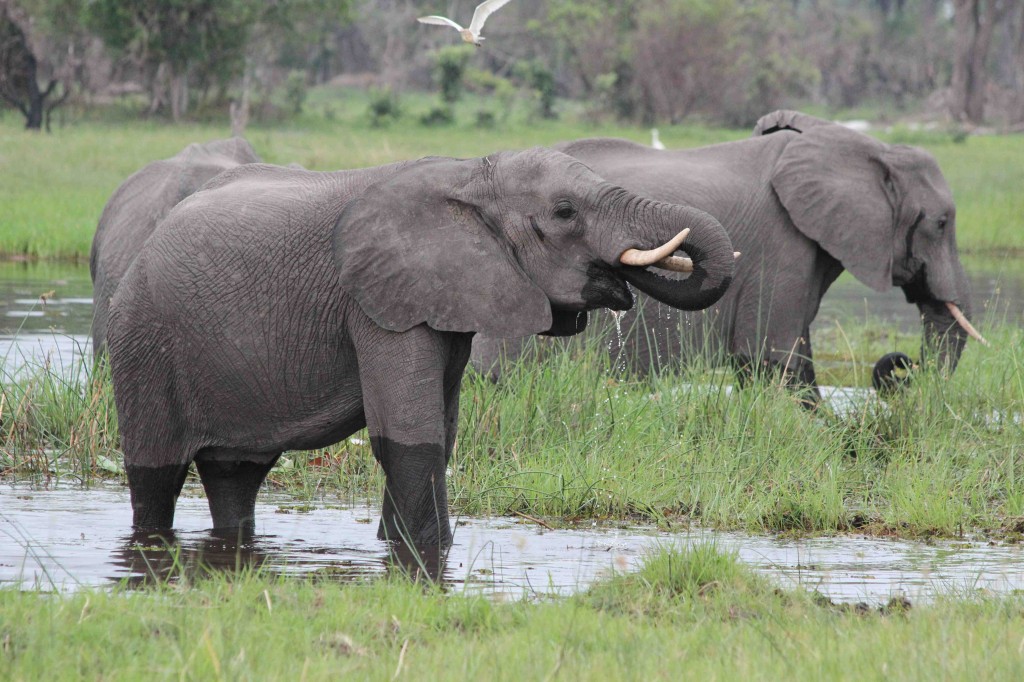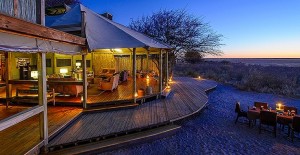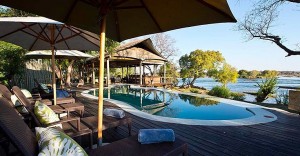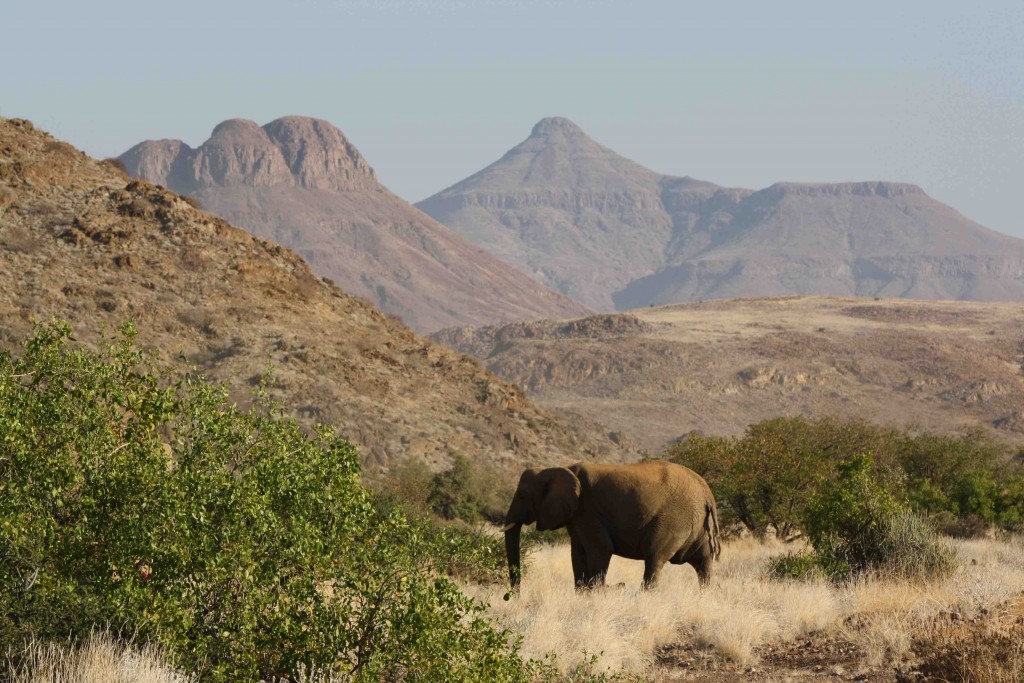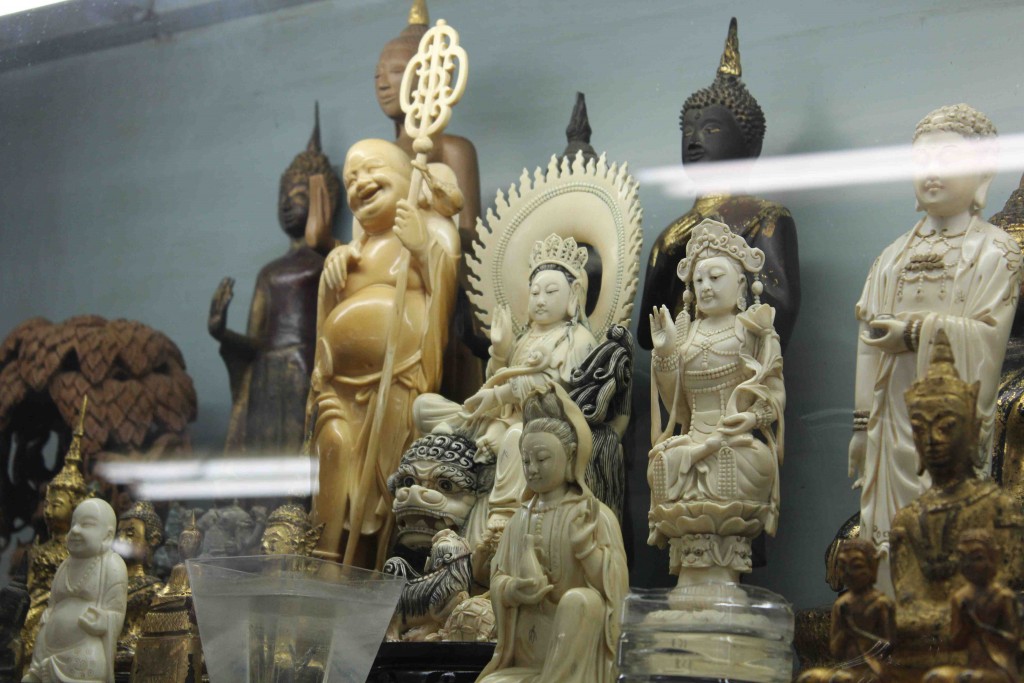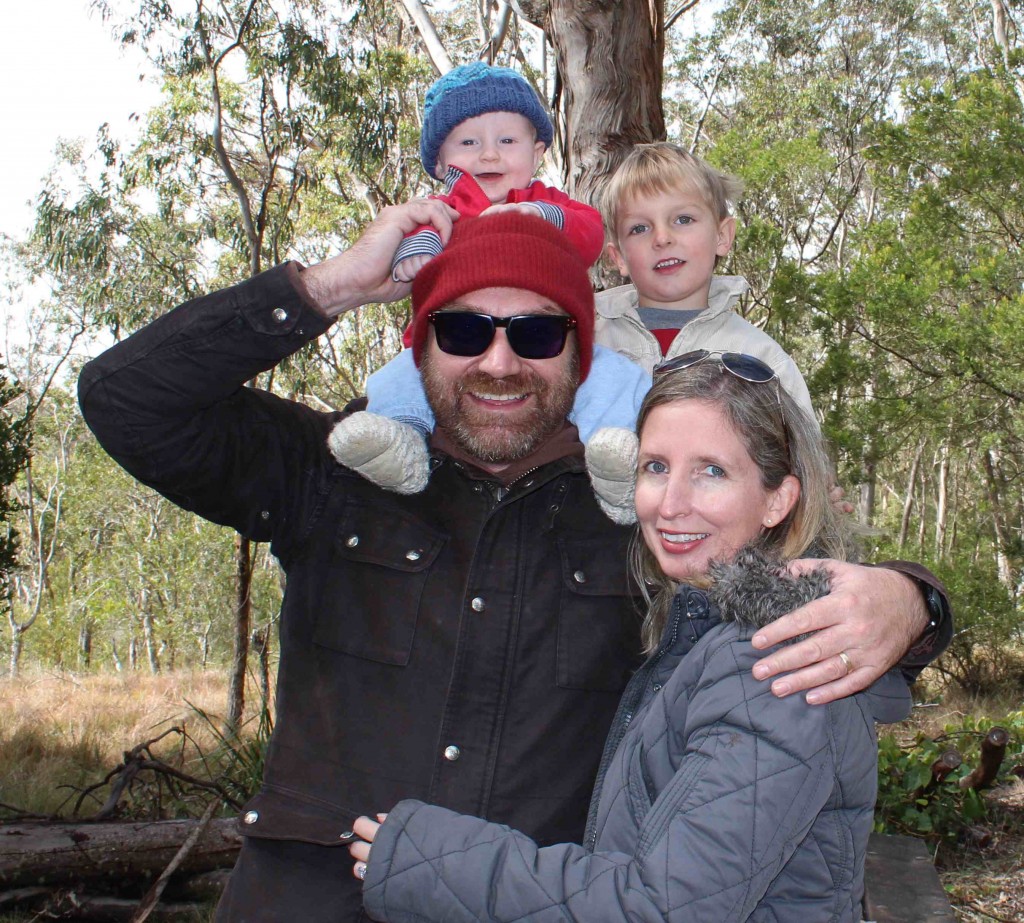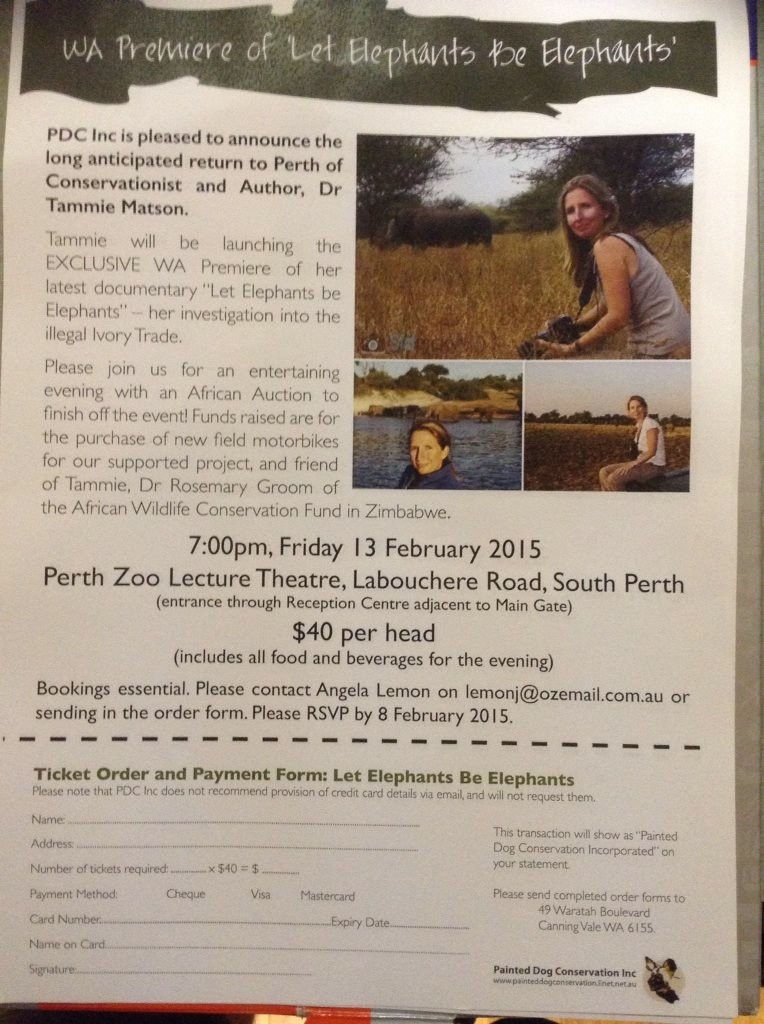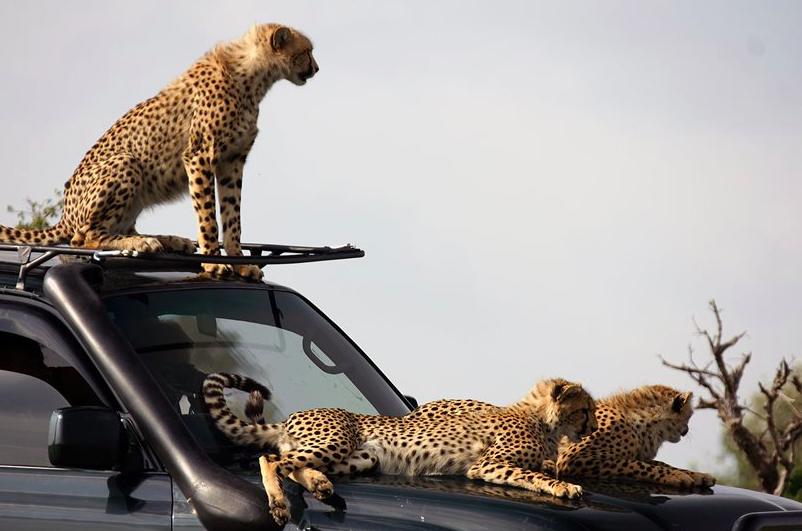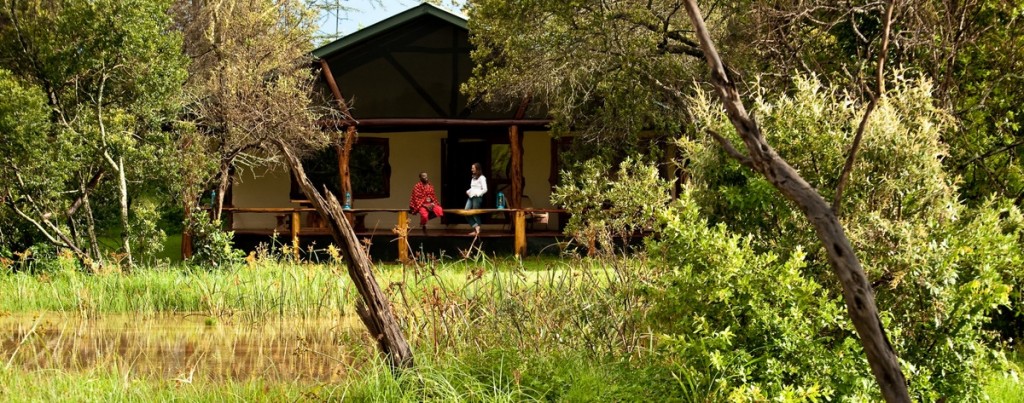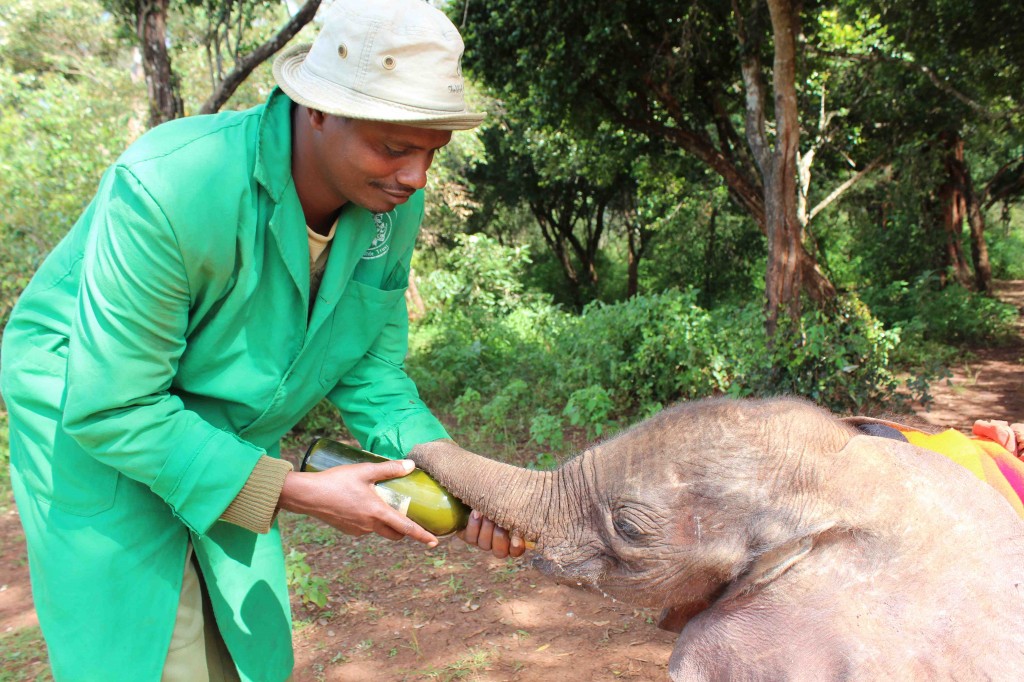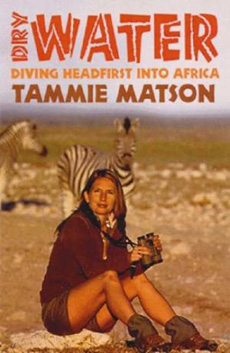5 Reasons To Visit Namibia, Land of Big Skies & Desert Dunes
Where should you go on safari in Africa? The choices seem bamboozling at first – Kenya, Tanzania, Zimbabwe, Botswana, South Africa… All are amazing and have their own unique angles and experiences, but I’m going to share a few reasons why I think you should consider one of my favourite safari destinations – Namibia. If my photos below don’t convince you, consider these five reasons why Namibia should be on your bucket list.
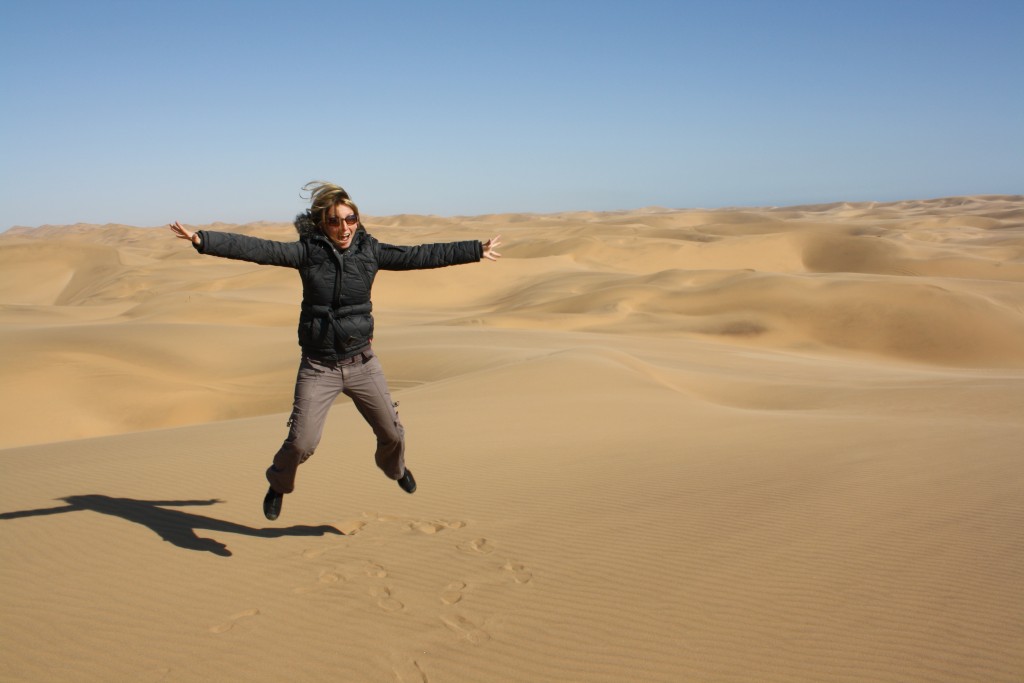
Don’t ask me why, but even if you’re not the kind of person who tends to do random jumps in the sky, Namibia’s vast sands will make you want to
1) Safety.
Namibia is one of the safest countries you can go on an African safari. A whole lot of people don’t realise that there are less safe countries to visit in Africa (Nigeria, Congo and parts of West Africa spring to mind) and there are much safer countries, like Namibia. In my opinion, the two safest places to travel in Africa are Namibia and Botswana, partly because of their low human populations, and secondly because you don’t get the same kind of crime that you get in some other countries (like South Africa). Namibia is fabulous for families and first timers to Africa. We always used to call it “Africa For Beginners”. Lots of people do self drive safaris there because the roads are good and the scenery is spectacular.
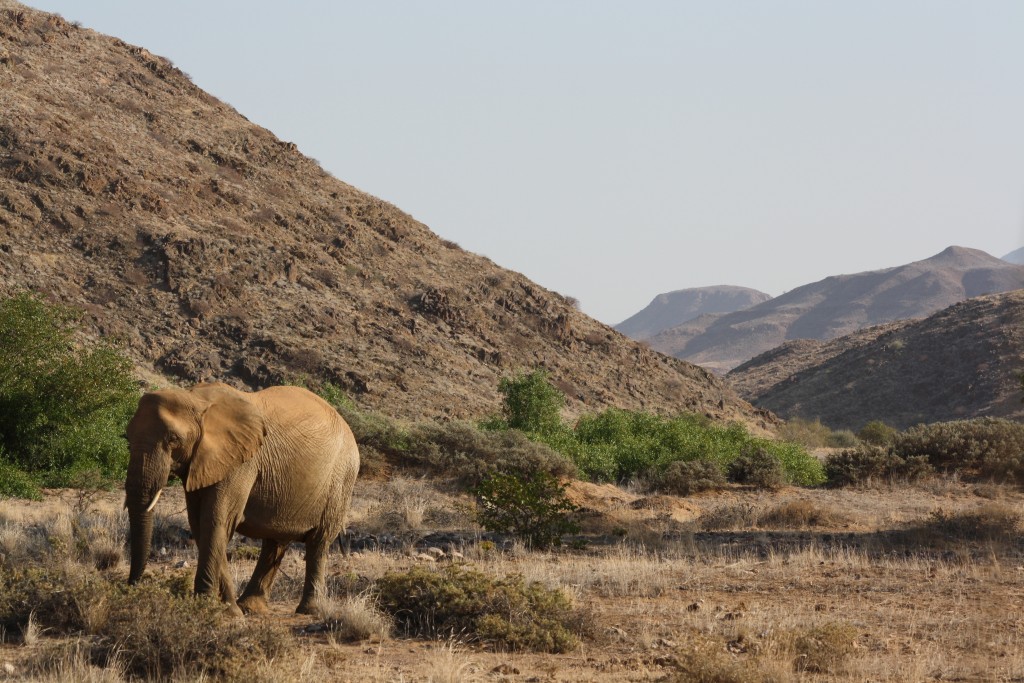
Desert elephants in Namibia. These are savannah elephants with special adaptations to life in the desert.
2) Space.
Most of us live in a world that is full of people living in close proximity to each other. We are constantly bombarded with commercialism and consumerism, bright lights, loud noises, all those things that are part of capitalistic life in the modern world. Namibia’s desert is the opposite of all that. There’s something about being miles from anyone else, enveloped by vast spaces and enormous skies, that provides a unique kind of escapism. For me, it’s a place I can breathe.
3) Conservation.
More than half of Namibia is under conservation protection. I mean, think about that. It’s amazing. Australia’s only got about 12% under protection. It’s not all national parks in that 50%+ under protection in Namibia, although at almost 20% in national parks that’s a big chunk too. The key is all the communal conservancies managed and legally run by the local ethnic groups. Namibia is one of the finest examples of community-based conservation you’ll find on the planet and tourism is a big part of that success story. In Namibia they’ve really got their head around giving local communities benefits from the wildlife, and that translates back to their excellent conservation record. If you book an ethical safari through Matson & Ridley Safaris, you’re directly contributing to this conservation success. Read more about Namibia’s community-based conservation at the website of the Namibia Nature Foundation.
4) Unique wildlife
The safari experience you get in Namibia is like no other. You won’t get all of the ‘Big Five’ (lion, leopard, buffalo, elephant, rhino) on your first game drive. Namibia’s about quality, not quantity. What you will get is a single, regal, solitary oryx antelope standing on the desert dunes at sunset. You’ll get tall, white elephants in Etosha (in the dry season), coloured that way because of the white dust flung off the enormous pan. You’ll get tiny lizards that dance to stop their feet overheating on the boiling hot sand, and desert beetles with tiny ridges on their backs that trap the moisture from fog rolling in from the coast by standing into the wind on a ridge of sand. What you get there is unique desert-adapted wildlife in huge landscapes that even dwarf elephants.
5) Variety
On a single safari, you can experience the sandy orange dunes in the Namib Desert, the red, rocky volcanic landscapes of Damaraland in the north west, thorny bush lands and of course the famous Etosha salt pan fringed by short grasslands. In the north east you get big flowing rivers and in Bushmanland you get ancient, towering baobab trees. It’s incredibly diverse. You do have to cover a bit of distance as it’s a big country, but your money goes a long way in Namibia. There are also at least 11 ethnic groups in Namibia, from the traditional ovaHimba people to the cattle-focused Hereros and the San Bushmen.
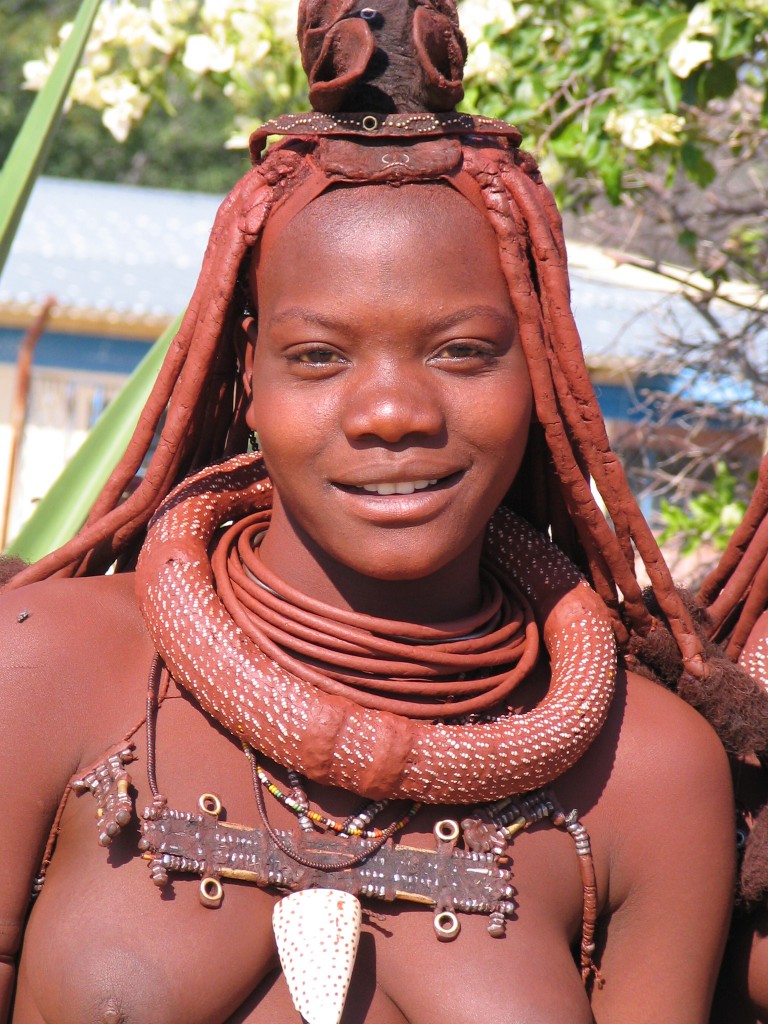
Meeting the local people while on safari is always a highlight, especially in areas where they benefit from the dollars you’re paying to visit them
I’ve got a few places left on my north west Namibia safari in May 2016, and only 1 spot for a single male for this year’s Namibian safari in September, so get in touch if you’d like to experience this amazing part of Africa with me. Alternatively, drop me a line if you’d like to book your own self-drive or fly-in safari in Namibia and I’ll plan an itinerary for you and your family that gives you your dream safari while making a difference in conservation. Namibia’s worth it, trust me!
Fancy a real wildlife adventure?
This week I thought I’d share a few videos of the great work being done in the Save Valley Conservancy, Zimbabwe to conserve wildlife, the location of one of only two conservation safaris I’ll be leading in 2016. (Click on this link for details)
This 8 minute preview to the upcoming documentary “Ranger Danger” by Reel Life Productions shows the work of the specialist rhino anti-poaching team in the Save Valley Conservancy, Zimbabwe. The short film takes you behind the scenes in the daily battle to save Africa’s rhinos. Featuring insights from Bryce Clemence and his anti-poaching rangers, scenes of a wild dog being de-snared, as well as a re-enactment of an encounter with poachers (seemed real enough to me – trust me, you feel the adrenaline!).
On my safari to Zimbabwe in July next year, as well as spending time tracking rhinos with Bryce’s team, we’ll also be hanging out with the team working to conserve African wild dogs, Dr Rosemary Groom and Jess Watermeyer, and for some pure magic, spending time at a wild dog den while there are puppies! You’ll get to hear about African wild dog behaviour directly from the experts. Check out the video below to see the research team removing a snare set by poachers from an endangered wild dog. Wild dogs are highly social and quite playful with each other. Stay tuned for a future blog all about them…
And last but not least, we’ll spend a morning on my safari with Karen Paolillo, ‘the hippo lady’ at Turgwe Hippo Trust, who has been in the area for over two decades, observing up close and personal the hippos and their behaviour in the Turgwe River, and Karen’s special relationship with them. I don’t think there’s anyone in the world who knows wild hippos as well as Karen does, and visiting her is a truly special experience. Karen’s home, “Hippo Haven”, attracts all sorts of animals, including baboons, vervet monkeys and warthogs.
To spend time with the awesome rangers fighting for Zimbabwe’s rhinos, as well as Rosemary Groom’s wild dog team and Karen Paolillo and the Turgwe hippos, join my conservation safari to Zimbabwe in July next year. A portion of what you pay to go on this safari goes directly to the projects we’ll be visiting. Click here for more information. Don’t wait to add your name to the list as I am booking this safari now due to the popularity of the camps, which book out a year in advance. Experience the passion and the adventure of Africa with me while contributing to important conservation work – this is a safari that really makes a difference!
The World of Hyaenas
I’m a massive fan of hyaenas. They’re comical, cheeky and downright cute if you look at them from the right angle. One person who agrees with me is Dr Martina Trinkel, who was studying spotted hyaenas in Etosha National Park when I was studying black-faced impalas for my PhD many years ago. We both lived at the research camp at Okaukeujo, but for my first six months I barely knew her, as being a researcher of a nocturnal predator, she would go out at sunset to look for hyaenas just as I was coming back for a good night sleep after a day of studying impalas. I would see her return home in the early hours of the morning, just as I was heading out. You’ve got to be dedicated to be a predator researcher, out all night in the desert cold, patiently seeking elusive animals in the dark, but as this interview with Martina shows, she developed a huge respect for the hyaenas we all know and love from ‘The Lion King’.
Join Author Sally Henderson in Botswana
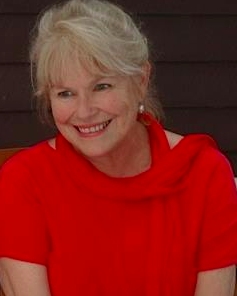 Author Sally Henderson and I have been good friends since long before either of us ever knew we would be published authors. Like me, Sally loves Africa with a passion, and so I’m very excited to offer you the exclusive opportunity to travel to Africa with Sally during Botswana’s amazing green season this year!
Author Sally Henderson and I have been good friends since long before either of us ever knew we would be published authors. Like me, Sally loves Africa with a passion, and so I’m very excited to offer you the exclusive opportunity to travel to Africa with Sally during Botswana’s amazing green season this year!
Sally’s love affair with Africa and its elephants came to life in “Silent Footsteps” and in its sequel, “Ivory Moon”. Join this thoughtfully planned safari and you will experience that passion for yourself as Sally shares her unique perspective of the wilderness and its creatures. You might even learn a thing or two about writing along the way.
A one-off journey that makes a difference to local wildlife and people, the safari incudes the Kalahari Desert, the World Heritage listed Okavango Delta, the Chobe river ecosystem and the majestic Victoria Falls, a truly unforgettable exploration into untamed Africa among an intimate group of like-minded travellers. Traveling in the safety and comfort afforded by one of Africa’s top ecotourism operators, Wilderness Safaris, in partnership with Matson & Ridley Safaris, you will be taken care of every step of the way and can trust that a significant portion of what you pay to go on this safari benefits local people and wildlife.
In the green season you can expect awe-inspiring thunderstorms and sunsets, lots of baby animals and warm summer days and without the crowds and price tag of the dry winter months (check out my recent photos taken in Botswana’s green season last year – click here). Don’t miss this exciting opportunity to join Sally Henderson’s intimate adventure into the Okavango Delta for 9 nights in November this year. This intimate safari is limited to 8 people sharing so contact me now to sign up.
Sunday 29th November – Kalahari Plains Camp
Set in a remote part of the diverse and productive Central Kalahari Game Reserve, this camp offers some of the best summer wildlife viewing opportunities in Africa. Located in the largest conservation area in Botswana, its star attractions include the legendary Kalahari black-maned lion and excellent cheetah viewing. The camp itself overlooks an immense pan with endless horizons and beautiful skies. The main area has a lounge and dining area with a swimming pool and deck. Solar power provides all the electricity and hot water in camp and insulated canvas walls and roof keep temperatures inside the units comfortable. One of the unique experiences at this camp is the interpretive ‘Bushman walk’ where you can immerse yourself in the culture of the Kalahari San.
Tuesday 1st Dec 2015 – Gomoti Tented Camp, Botswana
Gomoti Tented Camp lies in the centre of the private 6 000-hectare Santawani Concession, in the south-east corner of the Okavango Delta. The camp is nestled under large acacia trees in a diverse game-rich area. Most of the concession area comprises a mixed woodland habitat that gives way to open grasslands which can transform into floodplains in years of plentiful water. The area is rich with the wildlife for which the Okavango Delta is famous, including elephants, lions, African wild dogs, cheetahs and leopards.
Friday 4 Dec 2015 – Linyanti Discoverer Camp, Botswana
Set in the 125 000-hectare Linyanti Concession bordering Chobe National Park, Linyanti Discoverer Camp is your base from which to explore this enormous wildlife-rich area. Unrivalled in its remoteness and space, the concession is bisected by an ancient watercourse – the now-flowing Savute Channel. Wildlife is abundant and includes the seldom-seen sitatunga that can be spotted in the waterways, as well as the rare sable antelope.
Mon 7 Dec 2015 –Toka Leya Camp, Zambia
Overlooking the mighty Zambezi River and some of its islands, Toka Leya Camp is siutated in the Mosi-oa-Tunya National Park. The camp’s dining, lounge and bar areas offer ample space for relaxation and are complemented by an infinity pool, with meals served on the sundeck, the pool deck and dining room all overlooking the Zambezi. Situated just 12 kilometres from the world-renowned Victoria Falls, hippo, crocodile and elephant are regularly seen in or near camp. On the way to Toka Leya Camp you will experience a Chobe River boat cruise, and the opportunity to see elephants and hippos from this magnificent wildlife-rich waterway.
Inclusions on the Safari
- All accommodation as specified in the itinerary
- All meals (three course dinners), including the lodge/hotel in Livingstone
- All soft drinks, beer, fruit juice, mineral water and house wine, as well as small selection of local liquors
- Activities, guided tour of the Victoria Falls as specified in the brief itinerary
- Seat-in-plane light aircraft transfers (including departure taxes where applicable) as specified in the brief information
- Limited laundry is available ,all smalls to be done by guests
Exclusions on the Safari
- International flights
- Visas
- All relevant entry and departure government stipulated fees/taxes and unexpected increases thereto
- All personal purchases, including curios, premium brand liquors, telephone calls, etc.
- Any pre- and/or -post tour arrangements
- Optional extra activities/services not included in the brief itinerary
- All flights (other than specified)
- Gratuities
COST PER PERSON SHARING USD$8500
COST PER SINGLE PERSON USD$9500
MAXIMUM GROUP SIZE OF 8 PEOPLE SHARING PLUS SALLY
Contact me now to sign up!
Elephants, Safaris & More
First of all, just a quick reminder to book your spots on my 2016 safaris to Namibia and Zimbabwe if you haven’t already. I have very limited spots on these safaris, and they need to be booked a year in advance. For all the details of both safaris, please click here. Both are safaris that really make a difference in conservation and community development. In the Zimbabwean conservation safari in July 2016, you get to track rhinos with the pros, hang out with wild dog and hippos conservationists, and experience the amazing Hwange National Park, known for its large elephant concentrations & much more, and Victoria Falls. In the Namibian conservation safari, we’ll be visiting the north west of the country, focusing on the Skeleton Coast, spending time with desert elephants and the traditional Himba people. I can tell you from personal experience, both trips are mind blowing and life changing and the camps are as good as you’ll get in Africa!
Secondly, you may have heard that both China and Thailand are making some progress on clamping down on the illegal ivory trade. We’ve seen Thailand enforce a new law, the Elephant Ivory Act, which requires that all ivory be registered by the authorities by 21 April 2015 or face a penalty of 3 years in prison and/or a large fine. Some media sources are reporting that as a result the number of ivory traders has dropped markedly, as so many of them were unable to verify the origin of their ivory. I haven’t been able to independently verify this myself, and I believe there continues to be a major need for demand reduction in this country. Thailand has also instigated forensic technology to identify the source of ivory (Asian vs African) and will help police the trade.
China recently banned ivory carvings for a year, around the time of Prince William’s visit to Beijing, however this represents only a small amount of the ivory in circulation, and it’s really nowhere near enough to stop the problem. There’s a good article on this if you’re interested in learning more – click here. Prince William has become an outstanding advocate for stopping the demand for ivory and rhino horn and continues to speak out and use his influence for the cause. Check out his speech given recently in China by clicking here. But it’s going to take a lot more than is currently being done to reduce demand in China, the country most heavily driving the illegal ivory trade.
I’ve been working hard with the Let Elephants Be Elephants team this year to focus our awareness-raising efforts on Thailand this year – so watch this space for more information, coming up soon!
Finally, after a few lovely months back on home turf in Queensland, Australia, our family is relocating again, this time to Amsterdam in the Netherlands where my husband Andy is taking up an exciting new job in the environment movement. I’ll continue to update you on all things elephants and African safaris from my new base there.
My 2016 safaris – Zimbabwe & Namibia’s North West
As part of my travel agency, Matson & Ridley Safaris, I will be leading two safaris to two of my favourite parts of Africa in 2016. Based on my past safaris, the very limited spaces (maximum 12 people) book out very fast, so if you’d like to join please drop me a line now! These camps have to be booked now because they are so popular they book out a year in advance or more. And as with all my safaris, the camps are selected by me to ensure your tourism dollars make a difference on the ground. Trust me, these safaris will change your life! (more…)
Postponement of Africa event in Bangalow & news on WA event
Due to some wild weather headed towards the northern NSW coastline, locals are battening down the hatches so we’ve decide to postpone our Africa night at the Bangalow Heritage Centre to March. New date to be advised shortly. Thanks to everyone who booked and apologies for this, but we hope you can make it on the new date. Stand by for more details!
Thanks to everyone who came along to last week’s event in Perth to raise funds for the African Wildlife Conservation Trust, specifically for the African wild dog research and conservation project in Save Valley Conservancy, Zimbabwe. It was another fantastic night with lots of fellow lovers of Africa, talking about both elephants and African wild dogs and their plight in the wild, and it was great to meet some old friends and meet new ones with a similar passion. Best of all, the night raised enough for almost 4 motorbikes for the African wild dog project in Zimbabwe – a great result! Big thanks especially to the fantastic team at Painted Dog Conservation Inc. led by the tireless John and Angela Lemon who invited me over. It’s local community efforts driven by passionate individuals like this that keep important conservation work going on the ground in Africa. A massive salute to them and those who support them. (more…)
Africa night in Perth, WA coming up – 13 Feb
WA friends, I’m very excited to announce I’ll be joining fellow African wildlife lovers in Perth for the dedicated folks at the Painted Dog Conservation group on Friday 13th February at the Perth Zoo Lecture Theatre. Tickets are $40/person and includes food and beverage. Bookings are essential through Angela at lemonj@ozemail.com.au . I’ll be talking about the elephant situation, the illegal ivory trade and the Let Elephants Be Elephants project, and showing the documentary of the same name. There will be a healthy dose of Africa-itis in the room!
It’s for a good cause of course! The night includes an auction to raise funds for African wild dog research and conservation work being done by the African Wildlife Conservation Fund in the Save Valley Conservancy, Zimbabwe, a place very close to my heart. So come along if you’re in the area!
I just adore wild dogs and they’re among the most endangered predators on the planet, with only about 5000 in the wild. Check out my video footage taken of the cutest wild dog pups you’re ever likely to see from Zimbabwe (rapidly approaching 5000 youtube hits!).
Only 4 spots left for Kenya in July!
This is THE year to go to Kenya, with prices being so much lower than usual due to the masses being scared off due to ebola in west Africa (a long, long way from Kenya – you’re closer to the ebola countries in London than you are in Nairobi, just to put it in perspective). I only have 3-4 spots left on this amazing journey that makes a difference in the world famous Maasai Mara during the time of the Great Wildebeest Migration, led personally by me. Not to mention a private viewing at Daphne Sheldick’s elephant and rhino orphanage in Nairobi on the first day – utterly unforgettable!
If you’re ever going to do it, this is a great way to go, travelling with a small group of 10, plus you’ve got me there for everything you every wanted to know from a zoologist’s perspective, making friends for life with like-minded folks. Ask anyone who went on my last safari in Botswana – there’s a special kind of magic on a Matson & Ridley Safari because of the kind of people who join me…. Grab your spot now!
For full details on my Kenyan safari click here and contact me for an itinerary. I’m finalising numbers now so don’t wait!
Calling all Africaphiles in SE Queensland!
Being based in my old haunt, South East Queensland, for the next month or so, it seems too good an opportunity to miss to get together with fellow Africa-lovers in this part of the world. Annie from Annie’s Books on Perigian, a huge Africaphile herself, is hosting a night of Africa with yours truly on Wednesday 21st January at the Perigian Beach Community House at the Sunshine Coast (near Noosa).
I’ll be showing the Let Elephants Be Elephants documentary, which aired across Asia on National Geographic channel last year, but hasn’t yet been shown in Australia, and of course, talking about Africa, elephants and all things safari-esque! Only $15/person and includes wine and cheese – what a deal!
For further details check out Annie’s Books on Perigian website by clicking here.
WEDNESDAY 21st JANUARY 6.00pm
PEREGIAN BEACH COMMUNITY HOUSE, SUNSHINE COAST, QLD
$15 per person (includes wine & cheese_ Bookings 5448 2053 or email Annie at anniesbooks@bigpond.com
Look forward to seeing you there SEQ!
If you have a strong community of Africaphiles around you who’ve all got ‘the Africa bug’ real bad and you’d like me to join you for an evening where you live, drop me a line through my website.

